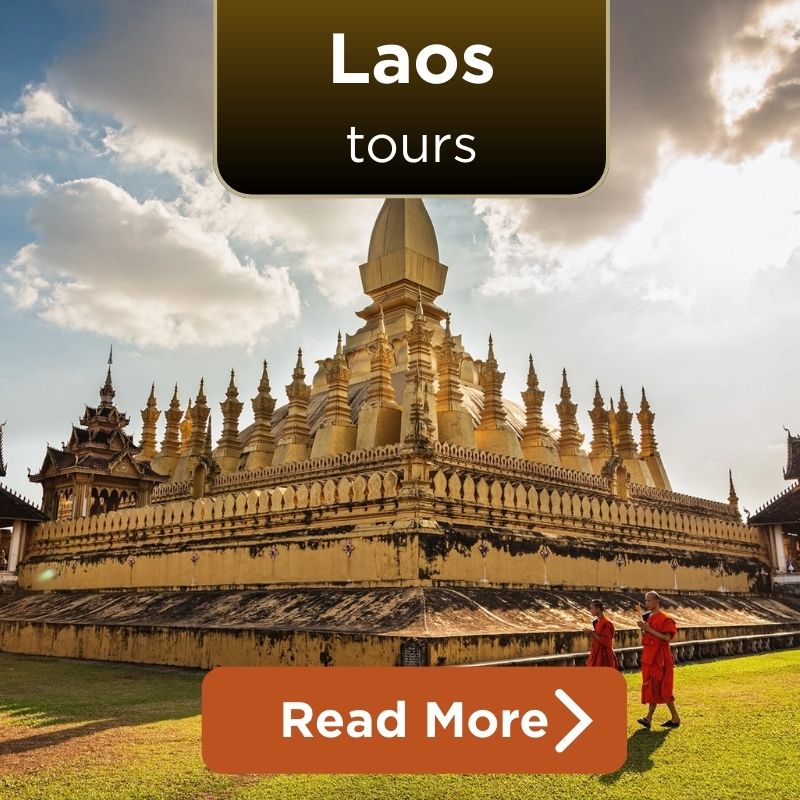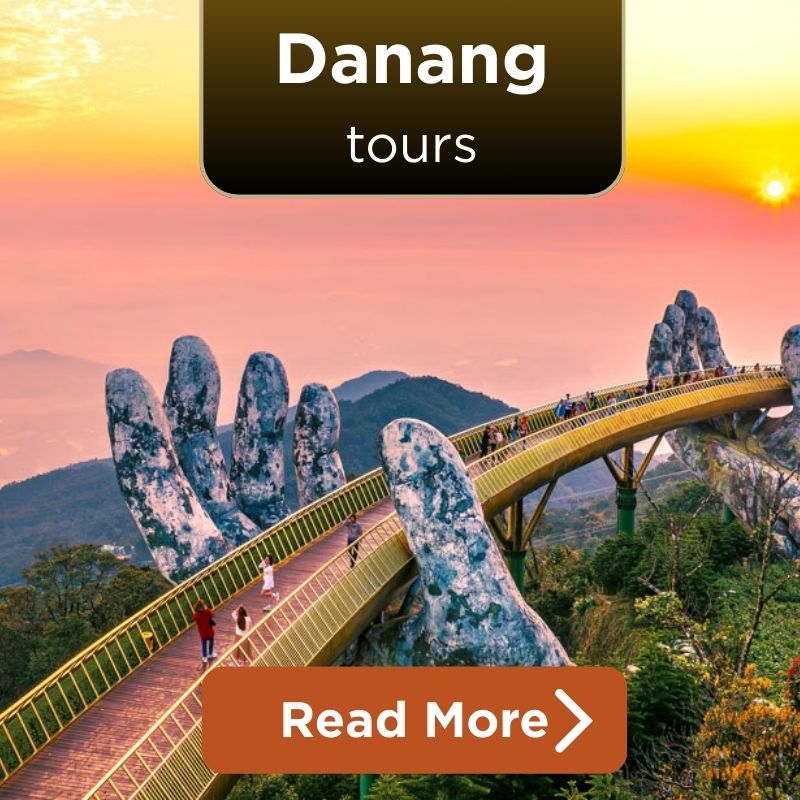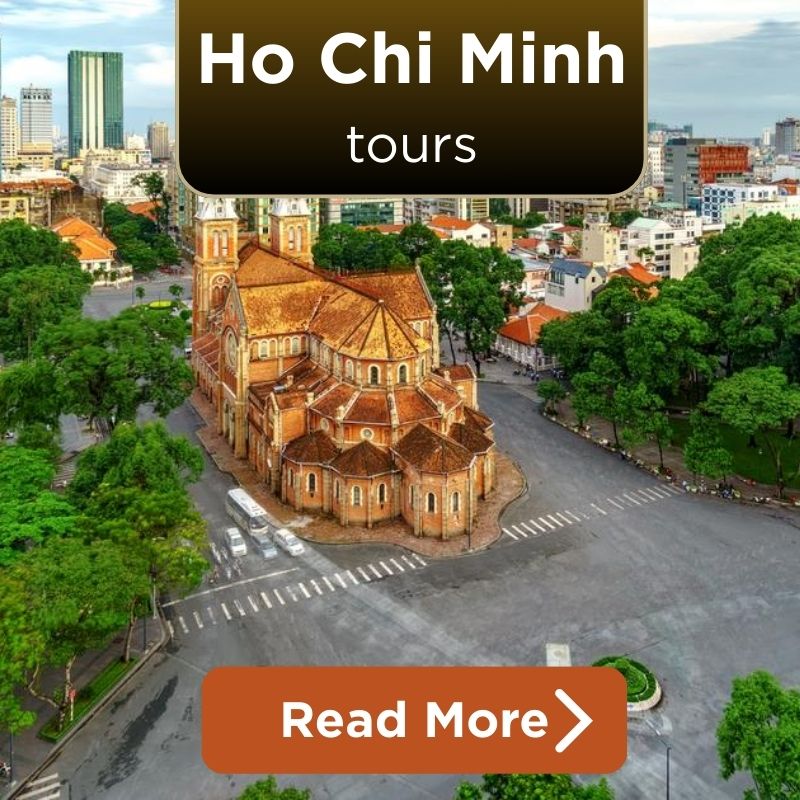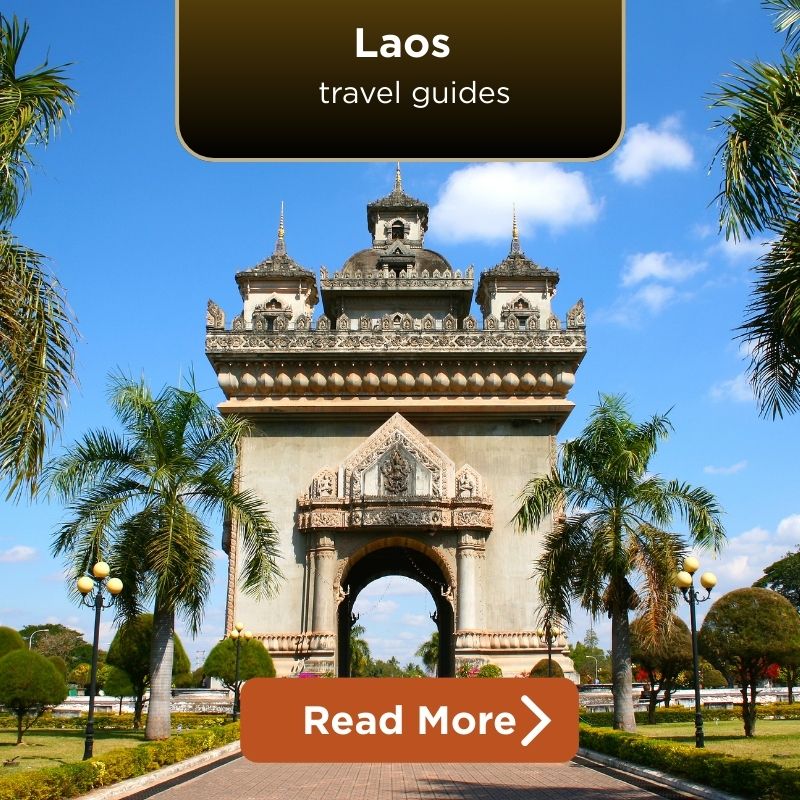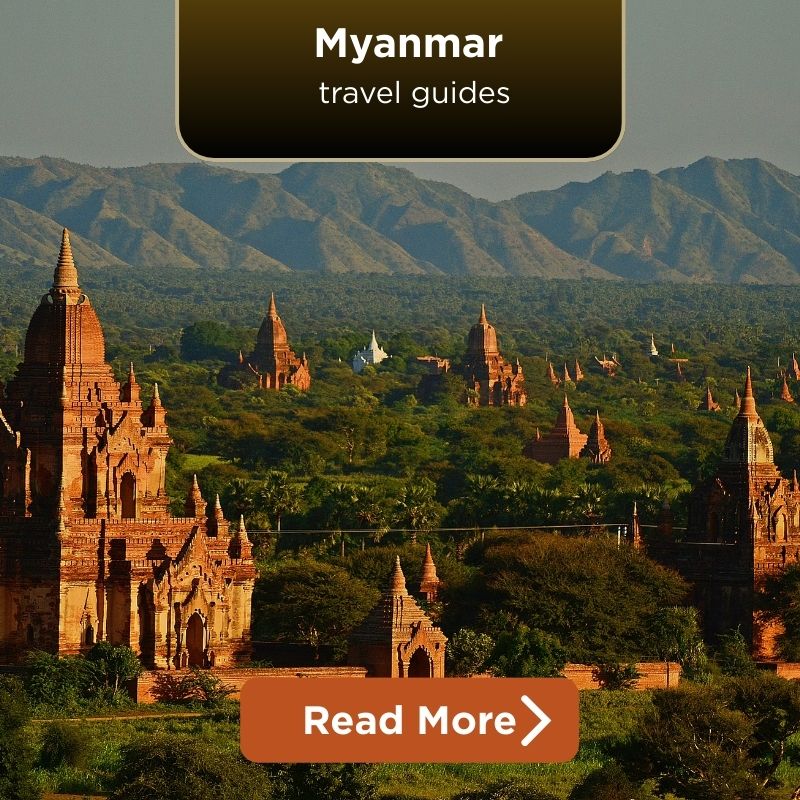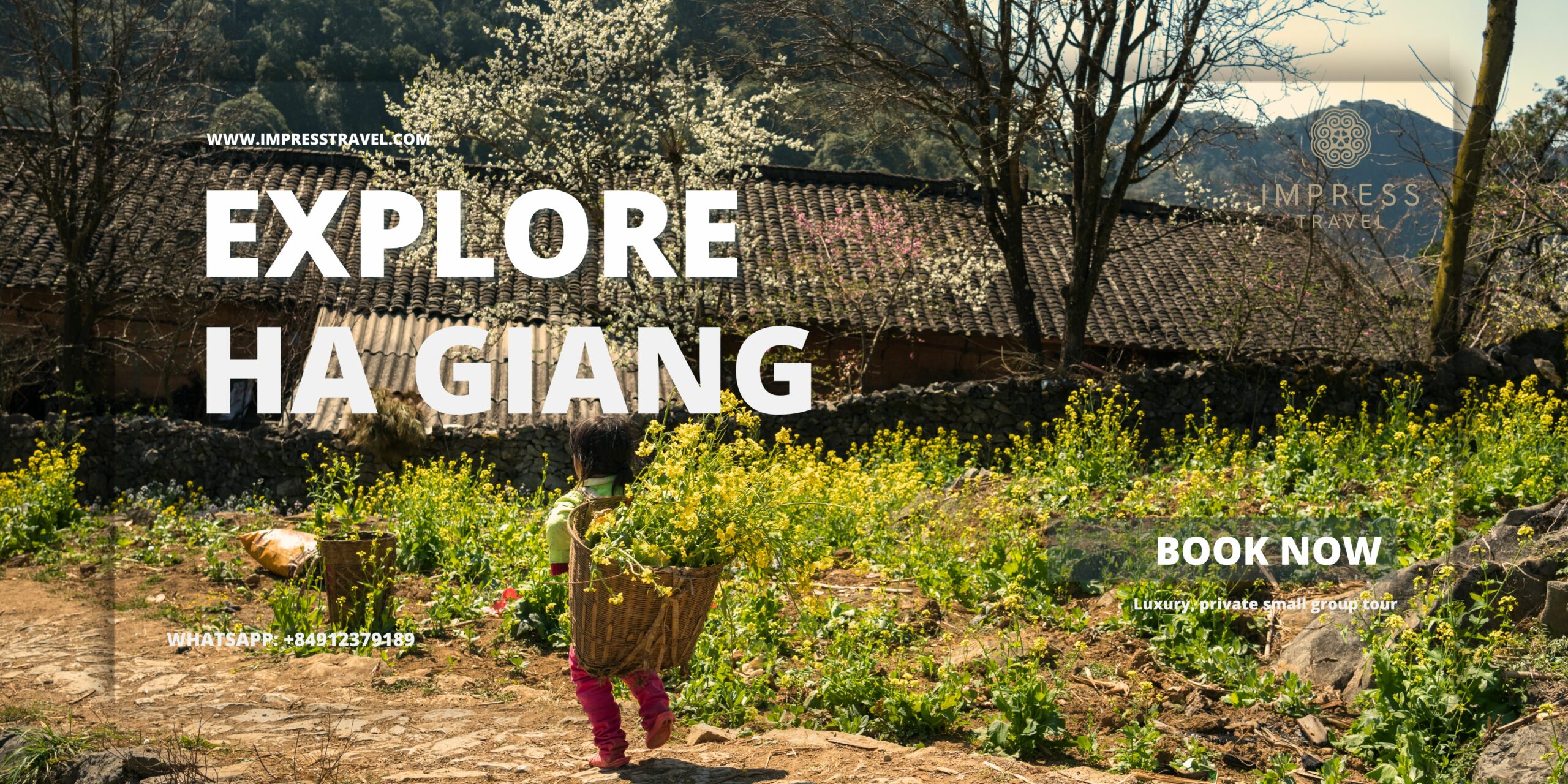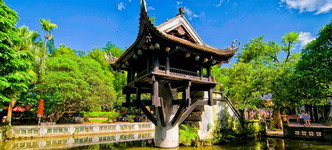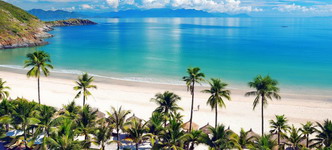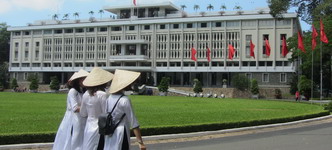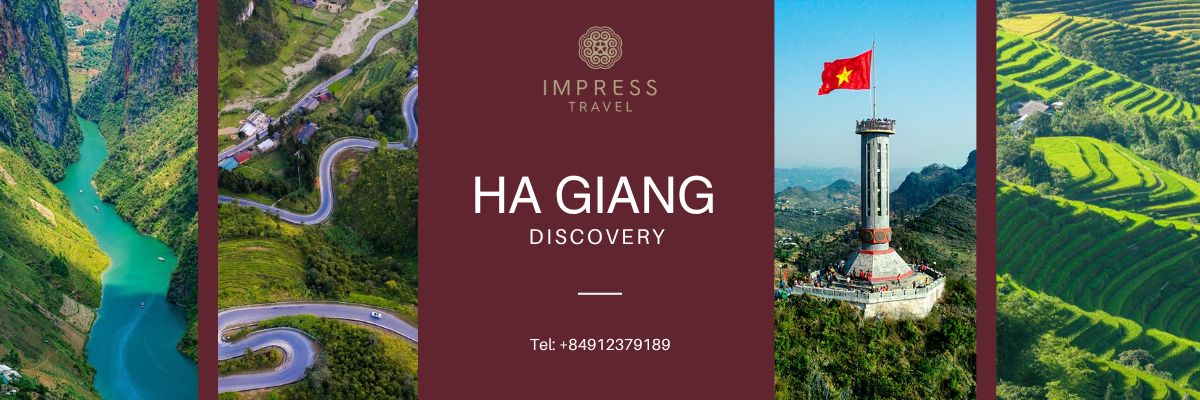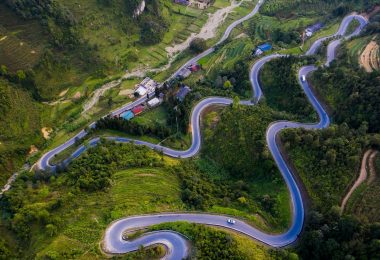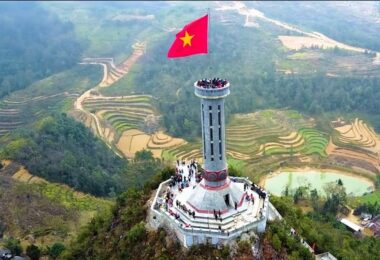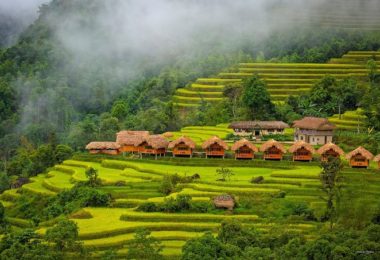Ha Giang Temperature & Seasons Overview
Average Monthly Temperatures in Ha Giang
|
Month
|
Avg Temp (°C)
|
Avg Temp (°F)
|
|
January
|
7–15°C
|
45–59°F
|
|
February
|
10–18°C
|
50–64°F
|
|
March
|
12–22°C
|
54–72°F
|
|
April
|
15–25°C
|
59–77°F
|
|
May
|
20–30°C
|
68–86°F
|
|
June
|
23–32°C
|
73–90°F
|
|
July
|
24–33°C
|
75–91°F
|
|
August
|
23–32°C
|
73–90°F
|
|
September
|
20–28°C
|
68–82°F
|
|
October
|
15–25°C
|
59–77°F
|
|
November
|
10–20°C
|
50–68°F
|
|
December
|
7–15°C
|
45–59°F
|
Highland vs. Lowland: The Altitude Advantage
One of the most awesome features of the Ha Giang Temperature is the extreme contrast between the highland and valley levels. In areas like Dong Van or Meo Vac at an altitude of well over 1,000 meters above sea level, you may see temperatures as low as below 5°C in winter. On the other hand, the lower-lying areas like Ha Giang City see relatively mild weather year-round. That’s why scheduling the optimum time Ha Giang Loop primarily has to do with where you’re cycling or hiking.
Dry vs. Rainy Seasons: What to Expect
- Dry Season (October – April): Cool and crisp weather, notably in December and January, and lowest rainfall. It’s ideal for motorbike loop drives and trekking, and taking pictures under clear skies.
- Do not neglect to consult our guide on December weather in Ha Giang, you may even experience frost or even snow in the highlands!
- Rainy Season (May to September): Tropical showers, greenery everywhere, and dramatic skies. The roads may get slippery, but the views?
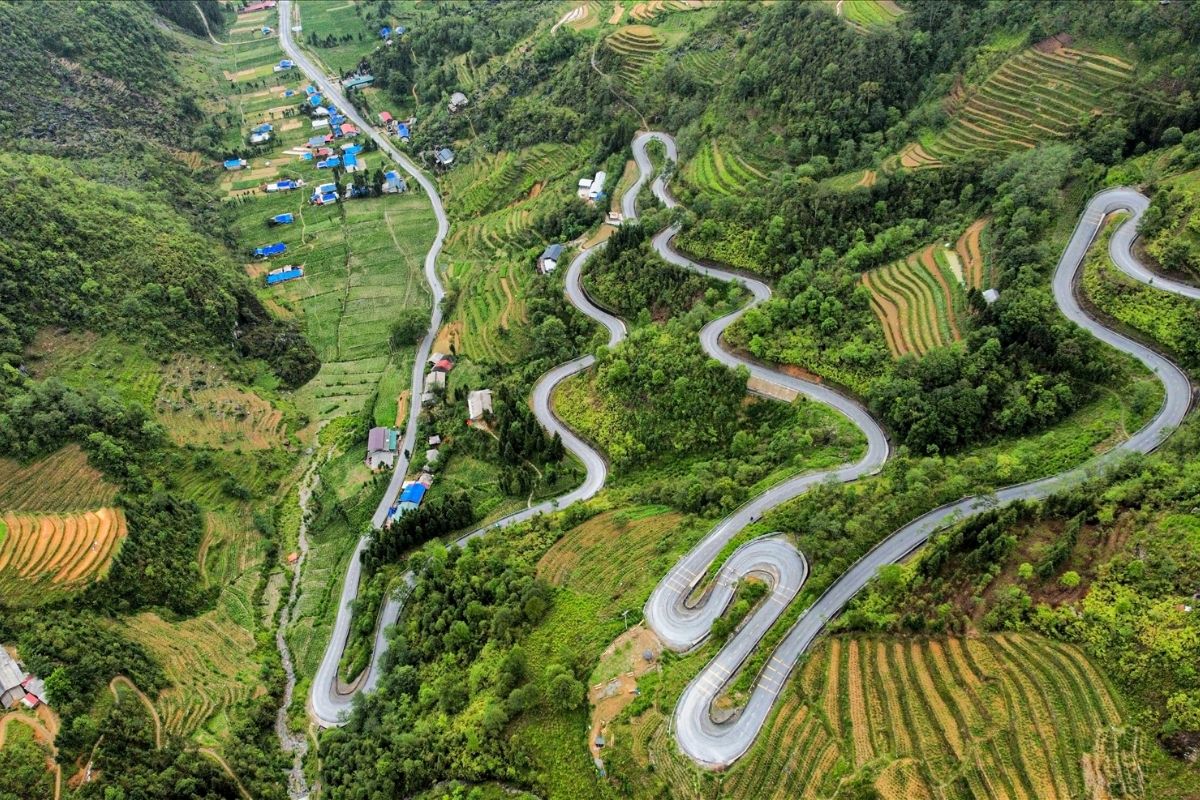
Ha Giang (Source: baodantoc)
Ha Giang Temperature by Month (Detailed Breakdown)
January – Peak Winter Begins
Temperature: 5–15°C (41–59°F)
Weather: The chilliest month of the year. Anticipate dense morning fog, clear crisp skies at noon time, and occasional frost or light snow at high elevations, such as in Dong Van and Meo Vac.
What to Expect: The least busy time to visit the Ha Giang Loop is January. The temperature decreased rapidly in Ha Giang and particularly in Dong Van Plateau and forming a magical ambiance of fog-wrapped cliffs and valleys. The roads are dry and cold, perfect for adventurous riders who like silence and solitude.
Top Experiences:
- Lung Cu Flag Tower (20,000 VND admission): Stop at Vietnam’s northern tip and enjoy wintry vistas from the Chinese border. The sharp breeze here gives you the feeling of being on the edge of the earth.
- Dong Van Old Quarter: Stroll through stone-paved streets and greet the dawn with bowls of chao au tau (bitter root porridge) in a local highland restaurant.
- Sung La Village and Pao’s House (10,000 VND): Witness the buckwheat blooms at their last flowering and H’Mong stone homes set in morning fog.
- Meo Vac Sunday Market: Experience rich cultural life in full color when locals congregate in colourful traditional attire, even in freezing weather.
Pro Tip: Carry thermals, gloves, and a windproof jacket. Want a comparison with early winter? Don’t forget our guide on the weather in Ha Giang in December for planning your trip at the ideal time.
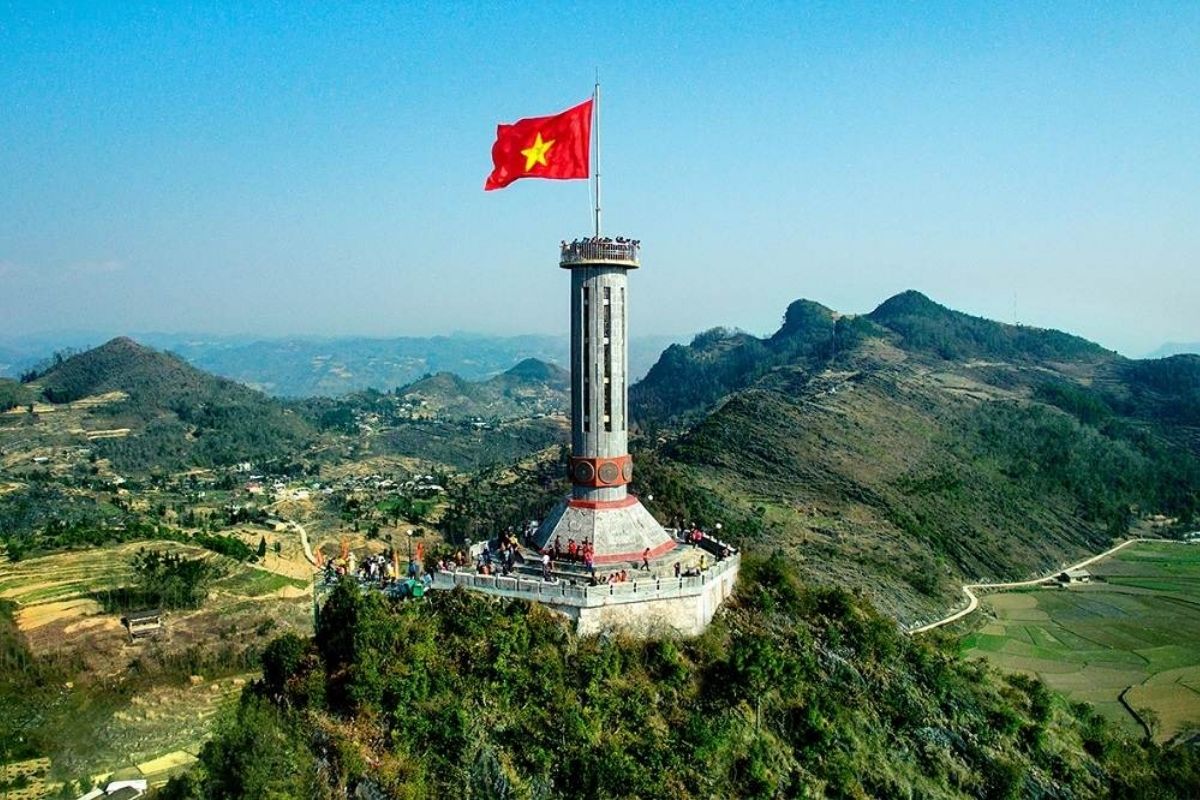
Lung Cu Flag Tower (Source: xanhsm)
February – End of Winter, Spring Blooms Begin
Temperature: 8–18°C (46–64°F)
Weather: The fog clears, sunshine reappears, and flower buds herald the approach of spring.
What to Expect: February has a graceful, romantic quality about it. The temperature in Ha Giang gradually increases, and the hillside starts blushing with the season’s plum and peach blossoms. It’s also Tet (Vietnamese Lunar New Year)—a time for culture, family, and tradition.
Top Experiences:
- Pa Vi and Pho Cao Villages: These villages spring to life in peach and plum blossom time, perfect for a motorbike trip dotted by photo stops.
- Partake in Tet Celebrations: Join the H’Mong or Dao people in their dancing, feasting, and celebrations. Look for handmade cakes, decorated apparel, and family reunions.
- The Vuong Family Mansion (~20,000 VND entrance fee): Enter the H’Mong royal family’s history amidst flowering orchards and mist-covered pine trees.
Pro Tip: Hotels fill quickly around Tet—book in advance. It’s one of the most vibrant months of cultural immersion, featuring light weather in Ha Giang and rich cultural traditions.
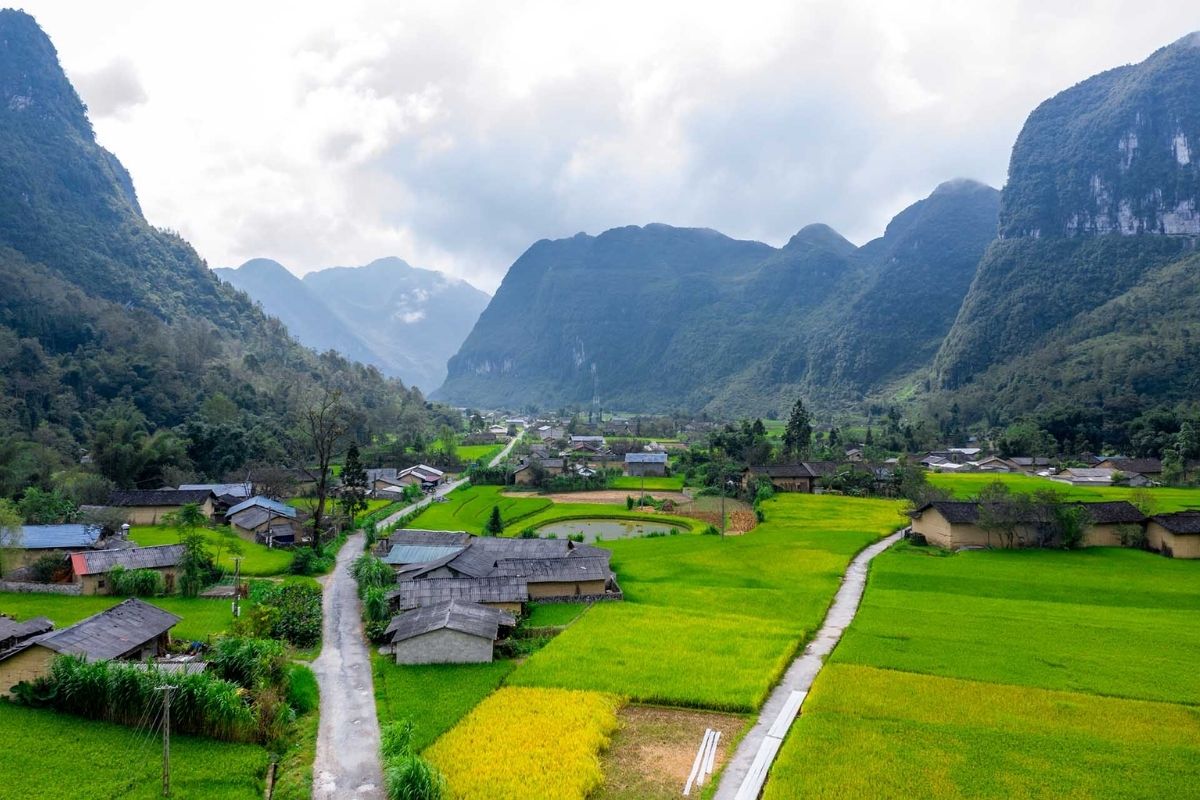
Pho Cao Villages (Source: annamtravel)
March – Spring Fully Arrives
Temperature: 10–22°C (50–72°F)
Weather: Blue skies and light winds, little rainfall. Spring has sprung in full force.
What to Expect:
March is a dream time of year for travelers. The Ha Giang Temperature is just right—warm enough to sightsee all day, cool enough so you don’t get sweaty. It’s one of the best time Ha Giang Loop times of year. Flowers color the mountainside, and conditions are perfect for a day’s ride and photography.
Top Experiences:
- Ha Giang Loop Motorbike Adventure: Perfect weather conditions for doing the loop from Ha Giang City via Quan Ba, Yen Minh, Dong Van, Meo Vac, and returning through Du Gia.
- Ma Pi Leng Pass: Travel down the road along the side of a cliff beneath clear skies and look down at jade-green Nho Que River.
- Dong Van Karst Plateau Geopark: Under the March sunlight, the UNESCO-listed limestone formations look most dramatic.
- Local Markets: Stop by the Lung Phin Market (Thursdays) or the Meo Vac Market (Sundays) for colorful fabrics, fresh fruits and vegetables, and local food.
Pro Tip: March is ideal for Loop newcomers. Scenic blooms and dry roads make every turn stunning.
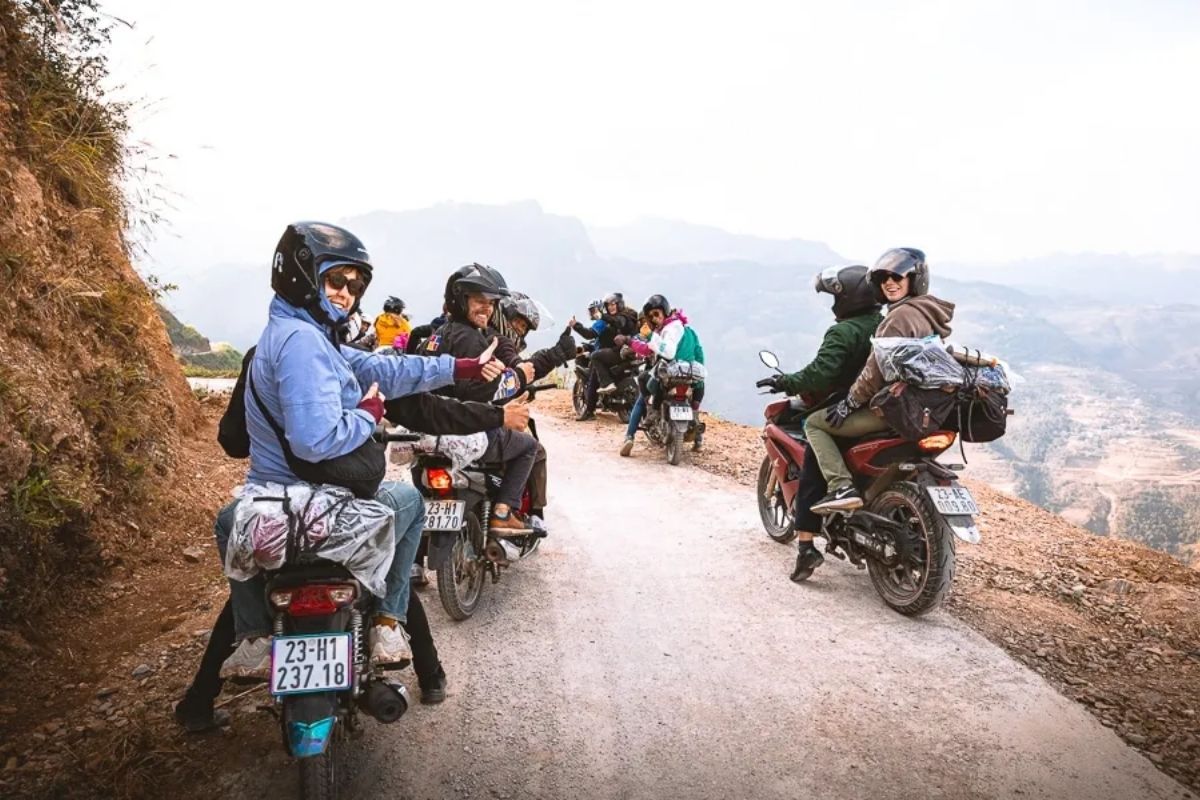
Ha Giang Loop Motorbike (Source: backpackersintheworld)
April – Perfect Balance of Cool & Green
Temperature: 15–25°C (59–77°F)
Weather: Warm enough for comfort and longer days. First hints of the rainy season arrive, yet generally clear days persist.
What to Expect: April is when the region shifts from spring flowers to brand-new rice paddies. The Ha Giang Temperature remains moderate, which makes it perfectly suitable for trekking, visiting villages, and slow traveling.
Top Experiences:
- Nho Que River Boat Ride (100,000–150,000 VND): Float through Southeast Asia’s deepest gorge, the Tu San Canyon, under imposing limestone cliffs
- Du Gia Village: A serene Tay village where you can experience forest walks, waterfalls, and family-run homestays at night.
- Nam Dam Village (Quan Ba): Explore the Dao people’s herbal medicine tradition, culture, and farming way of life.
- Lung Khuy Cave (approximate entrance fee: 50,000 VND): A brightly illuminated limestone cave close to Quan Ba, ideal for a quick trek and breezy exploration
Pro Tip: It’s the calm before the rain in April. Perfect time for nature and cultural exploration without the heat or crowds of summer. Still, one of the best time Ha Giang Loop season for photography and motorbike travel.
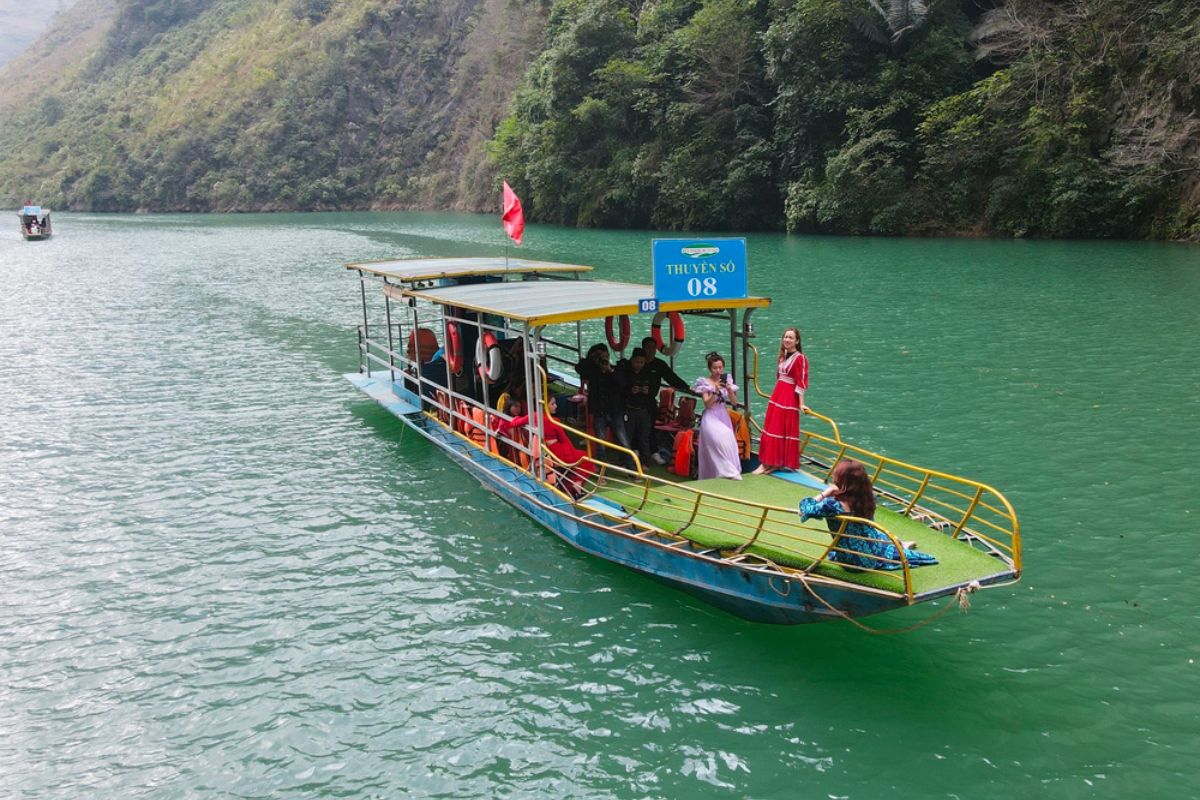
Nho Que River Boat Ride (Source: vietnam360)
May – Warm and Alive
Temperature: 20–30°C (68–86°F)
Weather: The rainy season commences early but has most days continuing with extended dry spells. The terrain transforms into lush green as the terraced rice paddies fill with water, a work of art in progress.
What to Expect: May is when Ha Giang stirs from spring slumber with verdant vigor. The Ha Giang Temperature gets noticeably warmer but remains ideal for outdoor excursions. Rice farmers start cultivating the paddies, and water gazing engagingly into the sky produces dreamlike “mirror" effects on the terraces.
Top Experiences:
- Hoang Su Phi Rice Terraces: This is a prime time to see the “water season" — when terraces become flooded and sparkle like glass in the sunlight.
- Thon Tha Village (proximity of Ha Giang City): Experience life at a Tay ethnic homestay and witness the traditional planting of rice.
- Quan Ba Fairy Bosom Hills: Fog clears early and daylight lasts longer here, making this twin-peak mountain a photogenic wonderland ideal for sweeping views.
Pro Tip: May is perfect for shoulder season travel. It’s less busy, but you’ll still have good access on the loop. While rain returns at this time, most falls later in the afternoon or at night.
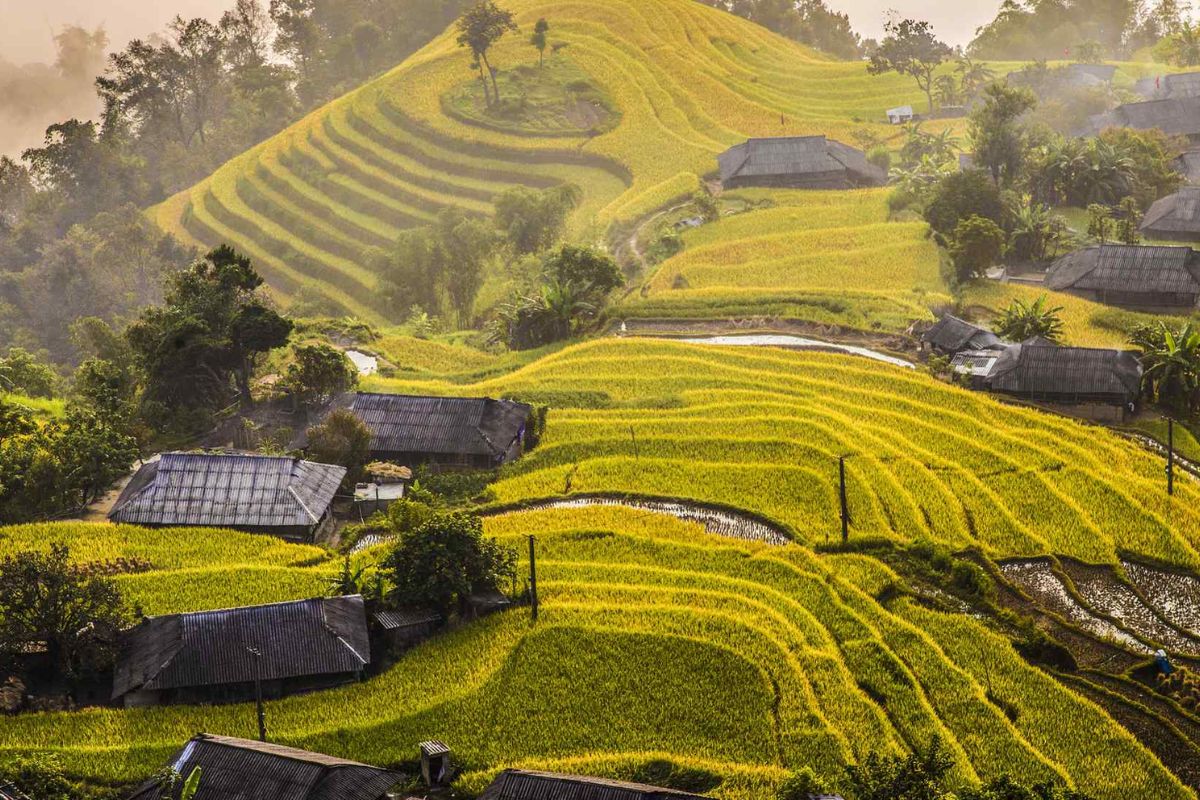
Hoang Su Phi Rice Terraces (Source: localvietnam)
June – Wet Summer Rains Arrive
Temperature: 23–32°C (73–90°F)
Weather: Hot and humid conditions exist daily and create a heightened risk of slippery roads or small landslides in mountain regions. Afternoons usually see thunderstorms develop, as mornings tend to be clear and sunny.
What to Expect: June is the wet season in full bloom in Ha Giang. The Temperature in Ha Giang may be higher than indicated, as it’s often influenced by humidity, but it has the bonus of jaw-dropping color saturation, every valley becomes emerald green.
Top Experiences:
- Photography at Du Gia & Meo Vac: Shoot the rice terraces, flowering bananas and misty valleys after rains.
- Nam Dam Communal Tourism Village: Stay dry on rainy days, doing activities indoors, such as herbal bath and crafts, organized by local Dao women
- See Waterfalls: Rainwater-fed waterfalls such as Tham Luong (situated close to Bac Me District) look their finest.
Pro Tip: Carry waterproof jackets, covers for your shoes, and quick-dry clothing for changing conditions. It’s not the best time for Ha Giang Loop for novice adventurers, but seasoned travelers with good gear will adore the dramatic, movie set-like landscapes.
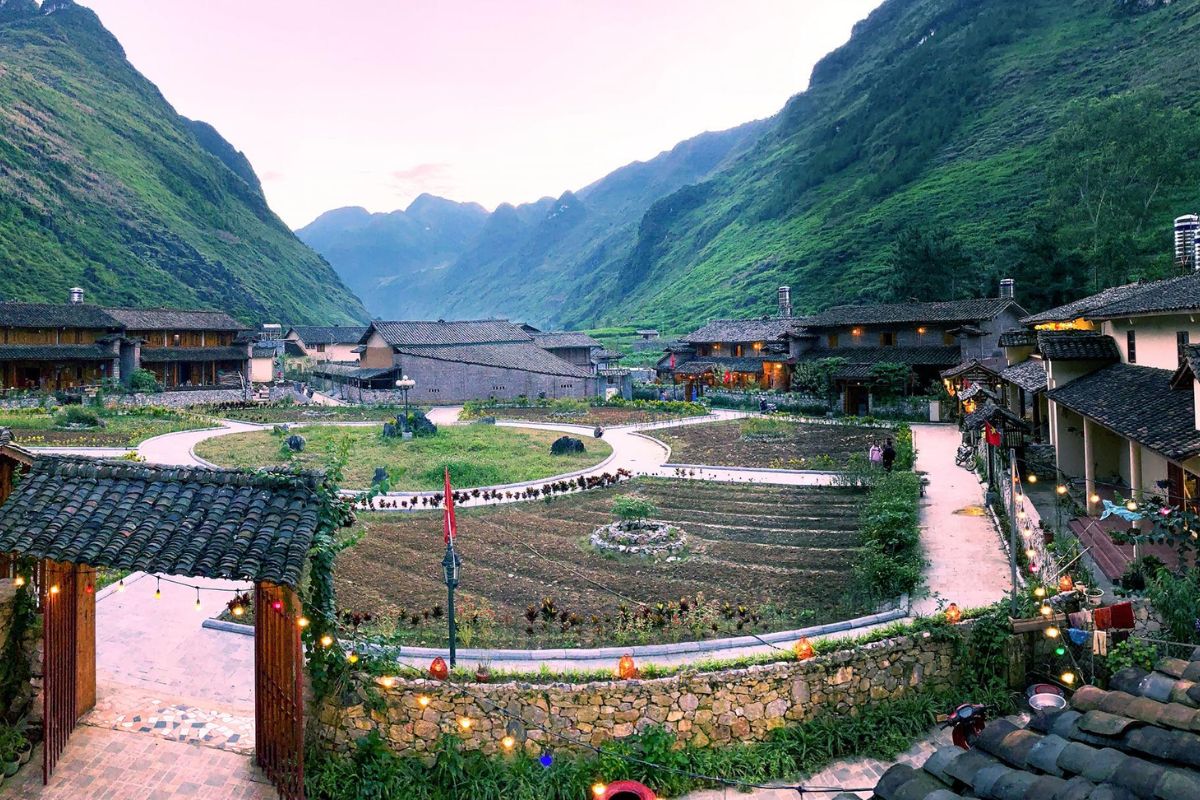
Meo Vac (Source: MeoVacValley)
July – Ha Giang at Its Greenest
Temperature: 24–33°C (75–91°F)
Weather: Rain season peak. It rains heavily in the afternoons and evenings in particular. The roads become muddy, but look very picturesque.
What to Expect: Welcome to flowering Ha Giang! The Ha Giang weather is hot, but so’s the payoff, lush green terraces, mist dripping off summits, and the smell of wet earth after each rain shower. It’s a slow travel time, ideal if you’re after depth rather than pace.
Top Experiences:
- Cooking Classes at Ha Giang City or Yen Minh: Learn the traditional ways of making thang co, men men, or sticky rice.
- Local Markets: Spend wet-weather mornings browsing indoor markets such as Quyet Tien or Lung Tam for handmade brocade.
- Stay at Riverside Homestay in Du Gia: Enjoy afternoons of herbal tea and looking out at rain falling on green fields.
Pro Tip: July isn’t so much about motorbike travel as about cultural immersion. It’s a good time for well-being seekers, gourmands, or photographers seeking mist, movement, and color in their images.
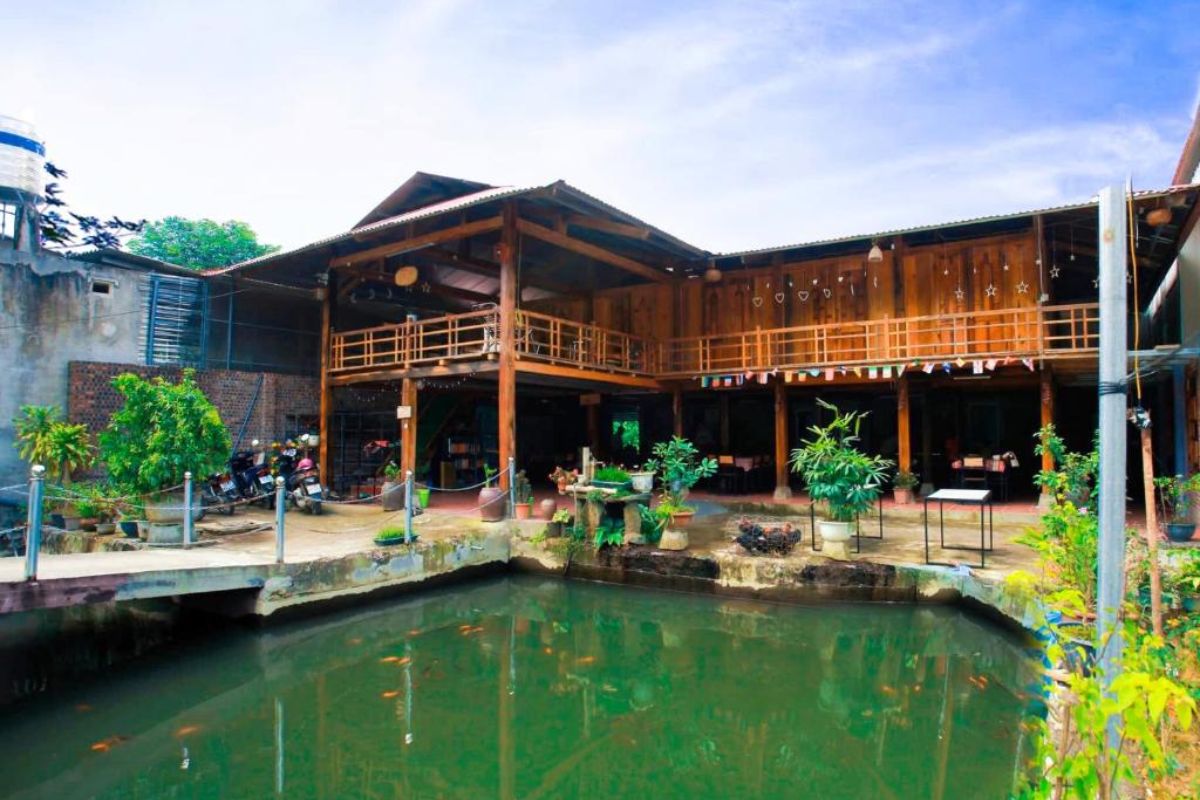
Homestay in Du Gia (Source: agoda)
August – End of Peak Rainy Season
Temperature: 23–32°C (73–90°F)
Weather conditions remain rainy but become clearer in the mornings and less storm-prone than in July. Waterfalls remain full, the forest remains dense, and the atmosphere remains rich and full of life.
What to Expect: August is a month of transition. The Ha Giang Temperature remains very warm, but showers become more predictable, usually confined to evenings or in the form of evening showers. Roads start drying out, and scenery remains very green, particularly in forested and valley areas.
Top Experiences:
- Tay Con Linh Mountain trekking (Vi Xuyen District): August is perfect for nature walks since the ground is beginning to settle down. Moss forests, bamboo groves, and small farmers’ plots are threaded by trails.
- Explore Waterfalls and Caves: Stop at Lung Khuy Cave and Tham Ma Waterfall when the flow remains strong.
- Take a Partial Loop: Do the Ha Giang – Quan Ba – Yen Minh route, which is drier and less hazardous than Ma Pi Leng when it rains most heavily.
Tip: As there are not as many tourists and lush green surroundings, August provides a serene experience. If you’re missing the winter ambiance, compare this with December weather in Ha Giang and determine your preferred season.
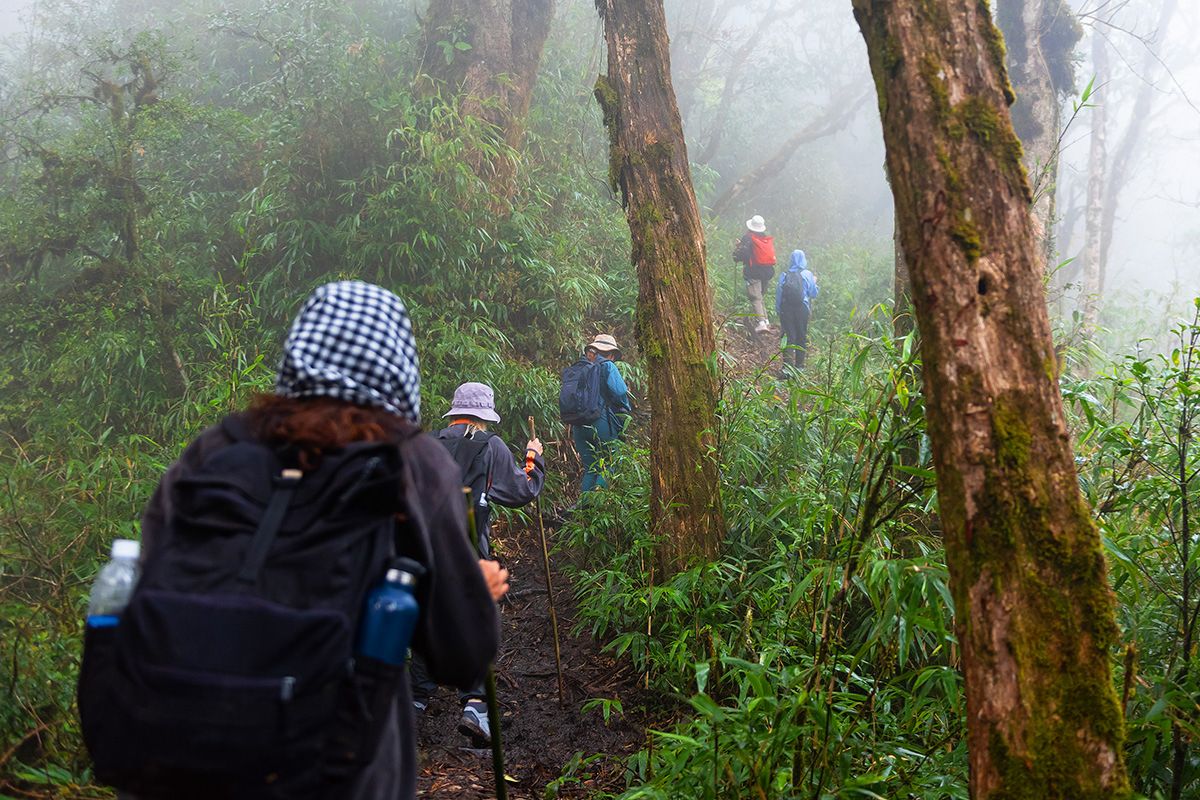
Tay Con Linh Mountain trekking (Source: laodong)
September – Start of the Golden Season
Temperature: 20–28°C (68–82°F)
Weather: Warm and less rainy. Rainfall tapers off and transitions to drier mornings and clearer skies.
What to Expect:
September brings a golden change of season. The Ha Giang Temperature stays pleasantly warm, but weather conditions become your friend, skies are clear, roads clear up and dry out, and the rice terraces at Hoang Su Phi or Yen Minh are golden pre-harvest. It’s a motorbike rider’s, trekker’, and photographer’s dream month.
Top Experiences:
- Hoang Su Phi Rice Terraces: This marks the beginning of the rice season. The steep terraces glisten like gold, notably about Ban Luoc, Nam Ty, and Thong Nguyen.
- Ma Pi Leng Pass: Under clearer weather conditions, this classic road becomes the highlight of the Ha Giang Loop for the enthusiasts of long rides and canyon panoramas.
- Trekking at Nam Dam or Du Gia: Trails dry up, villages bustle with harvest season activity, and you can overnight at serene ethnic homestays.
Pro Tip: September is a perfect mix of weather and visual appeal, and thus is one of the best times Ha Giang Loop for both first-timers and repeat travelers.
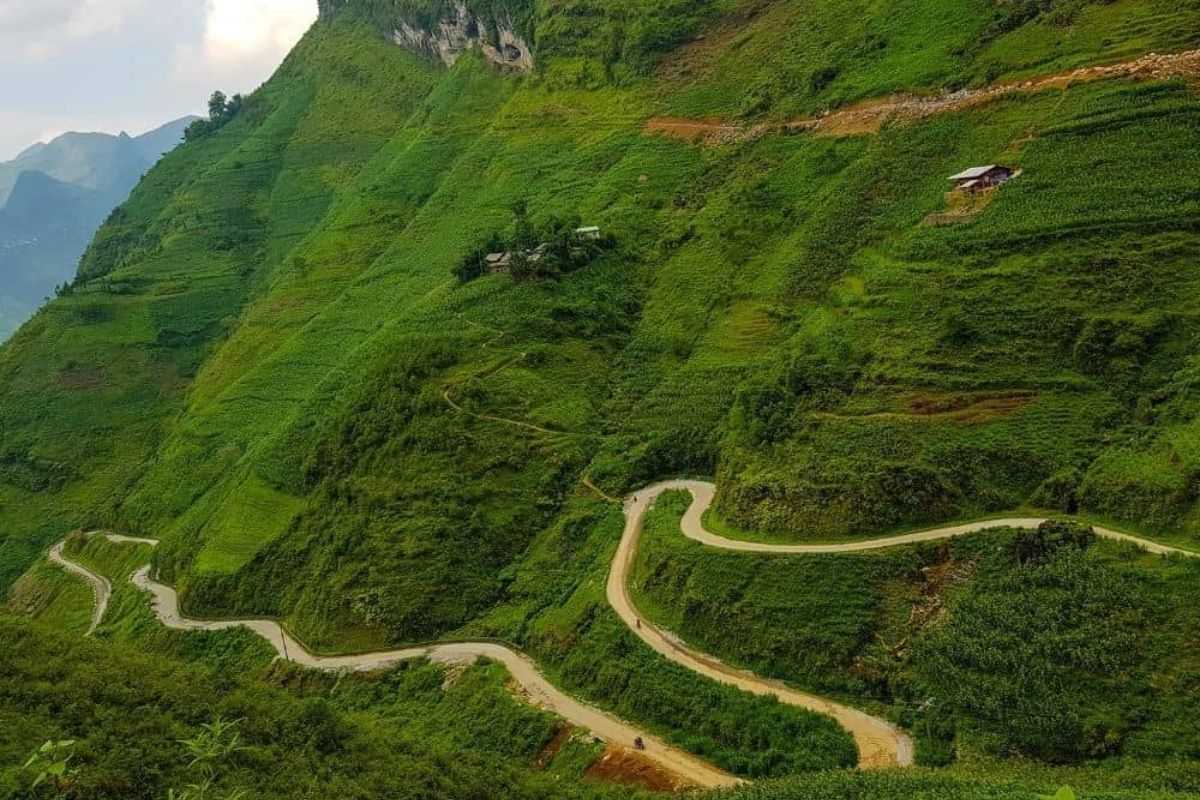
Ma Pi Leng Pass (Source: magictravel)
October – Ha Giang at Its Best
Temperature: 15–25°C (59–77°F)
Weather: Clear skies and dry and cool conditions. Possibly the best weather of the year.
What to Expect: October is the peak travel time in Ha Giang and rightfully so. The Ha Giang Temperature drops to a pleasantly crisp level ideal for full-day exploration. The union of clear skies, flowering blooms, and golden harvests is straight out of a postcard.
Top Experiences:
- Buckwheat Flower Festival (Late Oct – Early Nov): The rolling hills of Lung Cu, Sung La, and Dong Van are covered with pink and white buckwheat flowers. Cultural performances and food stalls abound throughout the area.
- Dong Van Old Quarter: The old district comes alive at festival time and hosts markets, food festivals, and cultural shows.
- Full Loop Motorbike Trip: Roads are at their perfect state, with minimum rainfall and stunning landscapes all around the route.
Pro Tip: Reserve rooms well in advance, it’s a very busy month. Bring a light jacket for nights, but be prepared for dry, mild days perfect for cycling.
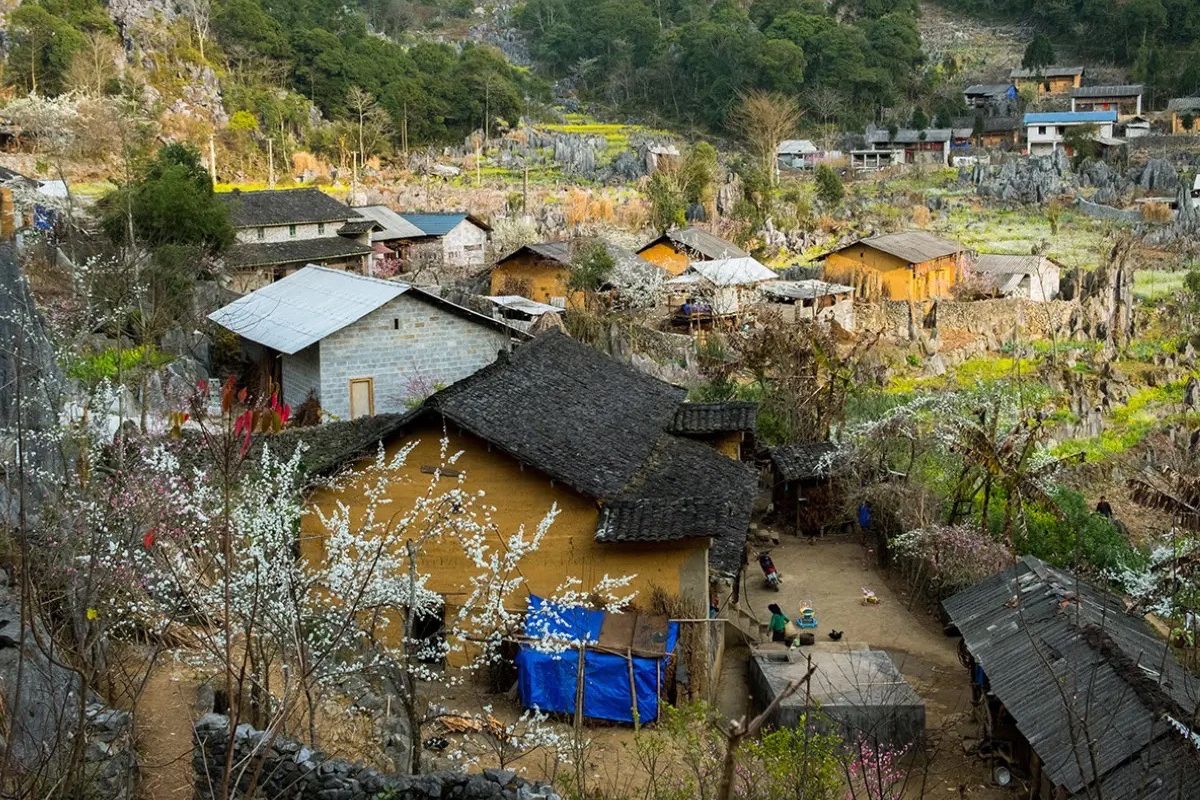
Dong Van Old Quarter (Source: yesd)
November – The Calm Before the Cold
Temperature: 10–20°C (50–68°F)
Weather: Dry and sunny weather, and gradually getting colder, particularly at night.
What to Expect: November marks the final month of warmth before winter arrives, and the Ha Giang Temperature registers this transition. The rice has already been harvested, the crowds of tourists have diminished, and a serene beauty returns to the mountains.
Top Experiences:
- Hiking in Tay Con Linh Mountains: The atmosphere is fresh, the weather is clear, and the forests start to light up in rich autumn tones.
- Markets of Quyet Tien and Meo Vac: The time for a leisurely discovery of local food, crafts, and tea without the tourist bustle.
- Photography: Haze dissipated and light softened, and it’s an excellent time to shoot the area’s natural textures, stone buildings, golden grasses, and deep azure skies.
Pro Tip: Exploring in November is a serene time of year. The evenings may be cool, so pack warm clothing, even if spending time in mountain villages.
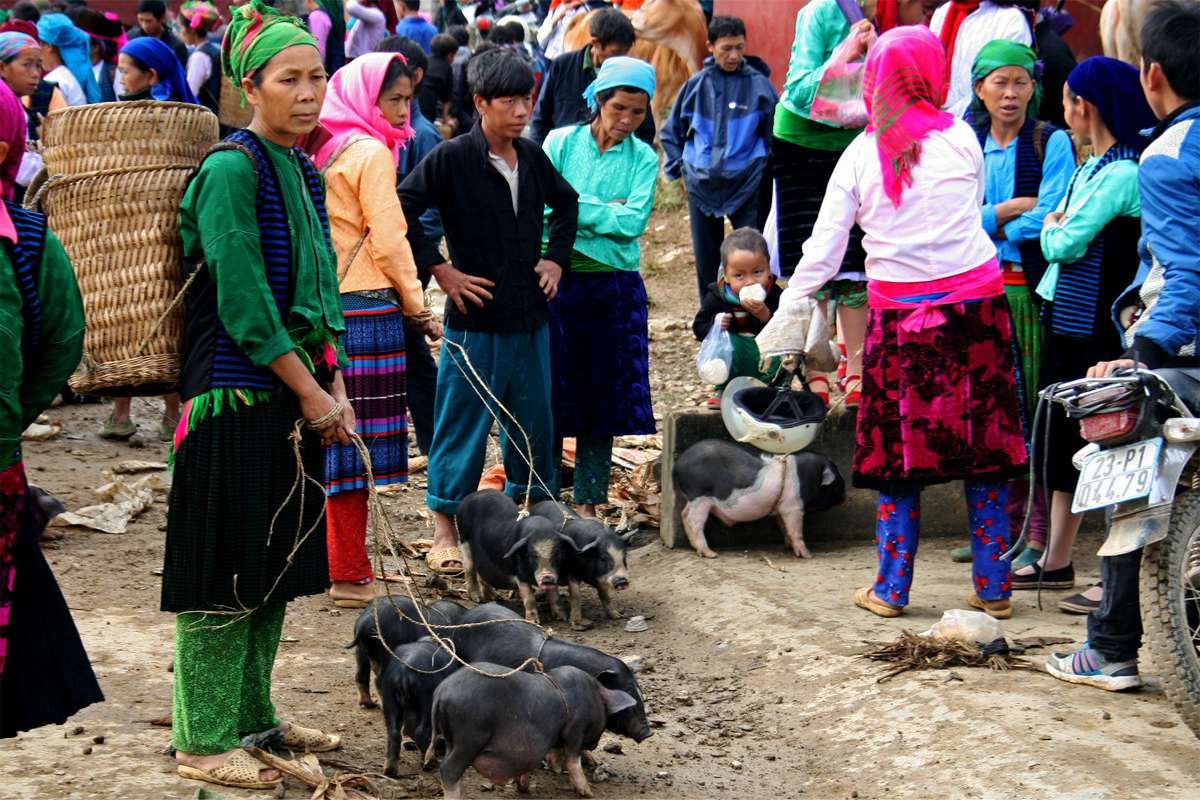
Meo Vac Market (Source: localvietnam)
December – Into the Misty North
Temperature: 7–15°C (45–59°F)
Weather: Dry weather conditions, thick morning fog, and the initial hints of frost or even snow at locations such as Lung Cu, Meo Vac, and Dong Van.
What to Expect: Winter in the north! December in Ha Giang is cold but enchanting, and the Ha Giang Temperature induces magical landscapes, foggy valleys, windy cliffs, and smoky kitchens of villages.
Top Experiences:
- Fog photography at the Ma Pi Leng Pass: The early morning is otherworldly, with fog streaming through the valley like a river. At their best between 6-8 AM.
- Sung La Village: The stone buildings and faded plains present a haunting loveliness specific to the season.
- Winter Foods to Try: Warm your belly with popular local fare such as chao au tau, thang den, and roasted corn.
Pro Tip: It may not be the hottest time of the year, but it’s a photographer’s dream! The dramatic skies, empty roads, and boiling plates make December a secret treasure. If you’re after a comparison of what early and later winter have to offer, see our guide on weather conditions in December in Ha Giang.
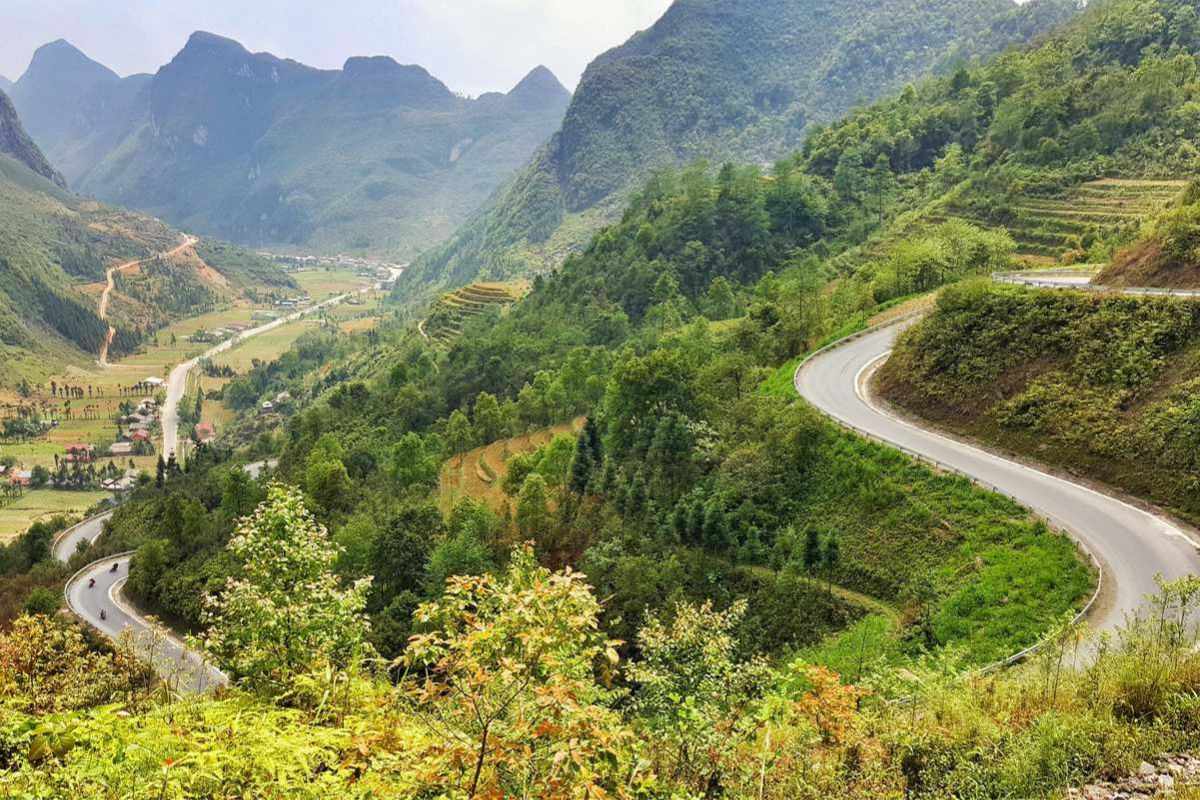
Sung La Village (Source: localvietnam)
Ha Giang Temperature Tips by Season
Dry Season (October – April): Clear Skies, Cool Nights
The dry season is when Ha Giang is most accessible. The roads are in good shape, the skies are usually crystal clear, and the vistas reach far and wide. Don’t be misled, however — the Ha Giang Temperature during winter months, from December through February, can plunge precipitously at night, especially at higher elevations.
What to wear:
- Thermal base layers and windproof outer layers for early morning rides
- Gloves, scarves, and a neck gaiter (particularly on mountain passes such as Ma Pi Leng)
- Lightweight apparel for daytime sun (March-April)
Road conditions:
- Ideal for motorcycling! Dry road conditions, clear roads, and little danger of landslides.
- Early morning could be foggy (particularly weather conditions in December in Ha Giang), postpone departures until conditions clear.
Packing essentials:
- Sunglasses and sunscreen (UV levels persist even in winter)
- Moisturizer and lip balm — cold winds dry out your skin quickly
- Pocket heat packs for your jacket pockets (yes, truly!).
Pro tip: Dry season months of March and October are generally regarded as the best time for Ha Giang Loop options. The weather’s mild temperature and every vista, rice paddy, or rocky outcropping is photo-perfect.
Rainy Season (May – September): Lush, Alive, But Wet!
This is the time of dramatic splendor and surprise adventure. The Ha Giang Temperature goes above 30°C, and the daily showers in June and August make the landscape come alive. It’s green and wet and full of energy, and also a little more challenging to explore.
What to wear:
- Breathable and rapid
- Waterproof jacket with a hood
- Sandals (for walking between homestays or at waterfalls)
- Pack a daily change of socks!
Road advice:
- Be careful on passes such as Bac Sum or Ma Pi Leng — landslides are unlikely but can happen.
- Book an Easy Rider tour and let a professional rider take care of the motorbike for you – ideal for the wet season!
Packing essentials:
- Waterproof backpack cover
- Microfiber towel (quick drying)
- Rain pants or full-body rain gear for extended rides
- Plastic bags for electronics
Tip: June and July offer lush and Instagram-worthy landscapes, rice terraces glisten, waterfalls thunder, and skies shift every hour. But suitable only for experienced riders or travelers who enjoy slow traveling.
Altitude Health & Safety: Don’t Underestimate the Mountains
The highlands of Ha Giang will surprise you. Before you’re rolling through sunshine, and on the next corner, you’re 1,500 meters above with teeth chattering from the wind. Regardless of the season, be prepared for the temperature difference of 10°C or more between morning and afternoon.
Health tips:
- Stay hydrated, high altitude dehydrates quicker than you expect
- If you’re cold-sensitive, pack heat packs and bulkier jackets
- Take regular rests on the Loop, exhaustion strikes harder at altitude
- Do not drink alcohol before you ride in winter
Medical must-haves:
- Basic first-aid kit (band-aids, antiseptic, cold medicine
- Motion sickness tablets or painkillers if you’re a passenger
- Sunscreen, even on cloudy days
- Use inhalers if you have asthma; the cold, thin air can make symptoms happen
Conclusion
Whether you visit any time of year, the Ha Giang Temperature creates a unique experience, from misty winter dawns to golden autumn landscapes. Wrap yourself in the chill, the rain, or the sun, as each season has a magic of its own. Still undecided? Have a look at our complete guide on the Ha Giang Loop route and discover the way timing makes the best time Ha Giang Loop happen. If you’re attracted by blossoms or fog, don’t overlook the weather’s secret charm in December in Ha Giang.







